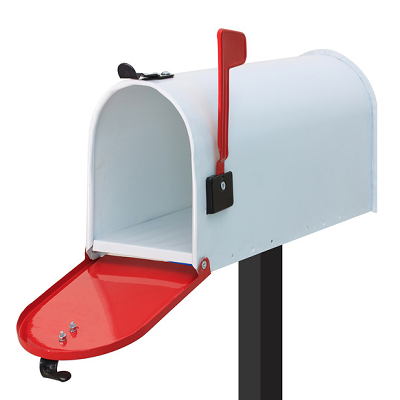JoomConnect Blog
How to Be Sure You're Getting the Most Out of Direct Mail
Chances are, you’ve received direct mail marketing, and it may have led you to consider utilizing it as a marketing tactic yourself, but you might have questioned how effective direct mail would be, and how you could possibly track its return on investment. The good news is that (if planned correctly) direct mail can have a significant, measurable influence on your marketing.
Direct mail doesn’t come without its concerns.
Admittedly, there are a few drawbacks to direct mail, but there are also ways to mitigate, minimize, or eliminate the effects that these drawbacks would have on your marketing efforts. First of all, it can be very easy to lose your audience’s attention, leaving you with less engagement, and there’s no guarantee that your mailer won’t be sent on a direct line to the recycling bin.
Troubles for Technology Companies
This seems to be more true of direct mail that is sent from a technology company than other industries. While many companies have not targeted their mail to the best recipients, there is also the fact that using ‘snail mail’ to describe how adept a company is at applying the latest technology solutions might not be the most convincing way to pose that argument.
Reduced Returns
Additionally, direct mail isn’t always the best at delivering an acceptable return on investment, or ROI. In order to keep the printing of your materials cost-effective, you will almost always have to produce enough materials for a large audience, as a smaller run of materials is proportionally more expensive. Plus, if your list isn’t up-to-date or targets the wrong companies, your ROI will still suffer. Your materials could be perfectly composed, but still ineffective if they aren’t received by the audience they were written for.
Fortunately, there are methods to minimize the impact that these detrimental factors have on your direct mail strategy.
How to make your direct mail piece more effective:
If you’re trying to maximize your ROI, it only makes sense to try to maintain your returns while minimizing your investment. While this does not mean you should cut corners during production, it does mean that you should take steps to save money where you can.
Keep it Simple...
For instance, while oversized or intricate mail pieces may seem to be a wise investment--after all, you’d certainly remember receiving something so different in the mail--the costs will almost certainly outweigh the benefits. Not only will these shapes likely cost a bit more to produce, they also have to be shipped specially, which will also incur considerable charges. The same goes for the materials used to produce your direct mail, as well as how they were produced.
...But Make It Stand Out!
We’ve already established that direct mail is a common strategy for businesses to use in their marketing--so, while you should keep your direct mail as easy to read and decipher as possible, you should also figure out some other means of distinguishing your mailers from those sent by others. One very effective method to help your mailers stand out is to make them lumpy.
If you’ve ever received an oddly-shaped gift and couldn’t wait to tear it open to see what was inside, you’re familiar with the lumpy mailer concept. By including an unnamed piece of collateral in the envelope, you’re providing the recipient with the motivation to open your mailer and read its contents.After all, who can resist a surprise bonus? This will also help your mailer make it past the employee who sorts through the decision maker’s mail and onto the proper desk, rather than in a trash can.
Utilize Templates
This is why it is better to focus on the content of your direct mail, rather than its shape, size, or other gimmicks. In fact, we recommend using templates to keep your pieces somewhat uniform. If you repeatedly use the same template for every letter you send, the same template for every postcard you put together, the same templates for every item you send to your contacts, your materials will soon become immediately recognizable. This makes it easier to generate marketing impressions.
Give It A Purpose
We like to say that your website should be the focal point of all of your marketing efforts, including your direct mail. Fortunately, there are now simple ways, such as QR codes or simple URLs, that allow you to direct the recipient of your marketing back to your website. Once they are there, you can continue to impress them with what you offer.
It also helps to dedicate each mailing to a particular end goal. If you have maintained your lists and know what each contact is more likely to be interested in, you can create a mailing list of contacts who are all interested in a similar service offering and a direct mail piece dedicated to their interest. The same goes for events, useful tips, and other things that you can gauge interest in--each can have an associated mailing list to which targeted content is distributed.
Of course, not every group will respond uniformly to the same kind of direct mail. In order to get the most mileage out of your marketing budget, you need to establish if your investments are paying off.
Calculating Your Success and ROI
Before your direct mail materials are sent out, you will want to make sure you have the means in place to track certain key performance indicators and establish what you would consider a good benchmark for success.
Simplified Measurements
This is made much easier to measure by utilizing the QR codes mentioned above to send visitors accessing your website from your mailer to a landing page, rather than your website’s homepage. The advantage of using a landing page is that it is only accessible via the link to it, and not by navigating the website. Therefore, Google Analytics can provide you with how many users accessed the landing page from your mailer. However, you should also be sure to block your own IP address from influencing your analytics and skewing your results.
Once you have done so, keep a careful measure of the size of your audience, how much each piece of mail cost you to send, your total budget for this initiative, the rate of response and rate of conversion, the number of buyers, the average revenue generated from each buyer, and the total amount of profit that was generated.
Determining Your Return
You can then take your values and plug them into the following equation:
(Gross Profit - Marketing Investment)/Marketing Investment
This number will represent the return you are experiencing from your investment into direct mail.
What You Should Do
With some relatively simple bookkeeping and arithmetic, you’ll be able to determine if your direct mail is delivering an acceptable return for your investment into it. If it is, excellent! If not, that’s okay, it just means that it’s time to make a few tweaks.
We can help you with those tweaks, whether you’re trying to fine-tune your direct mail strategy or if you’re trying to improve some other marketing effort. If you’d like our assistance, let’s talk.



